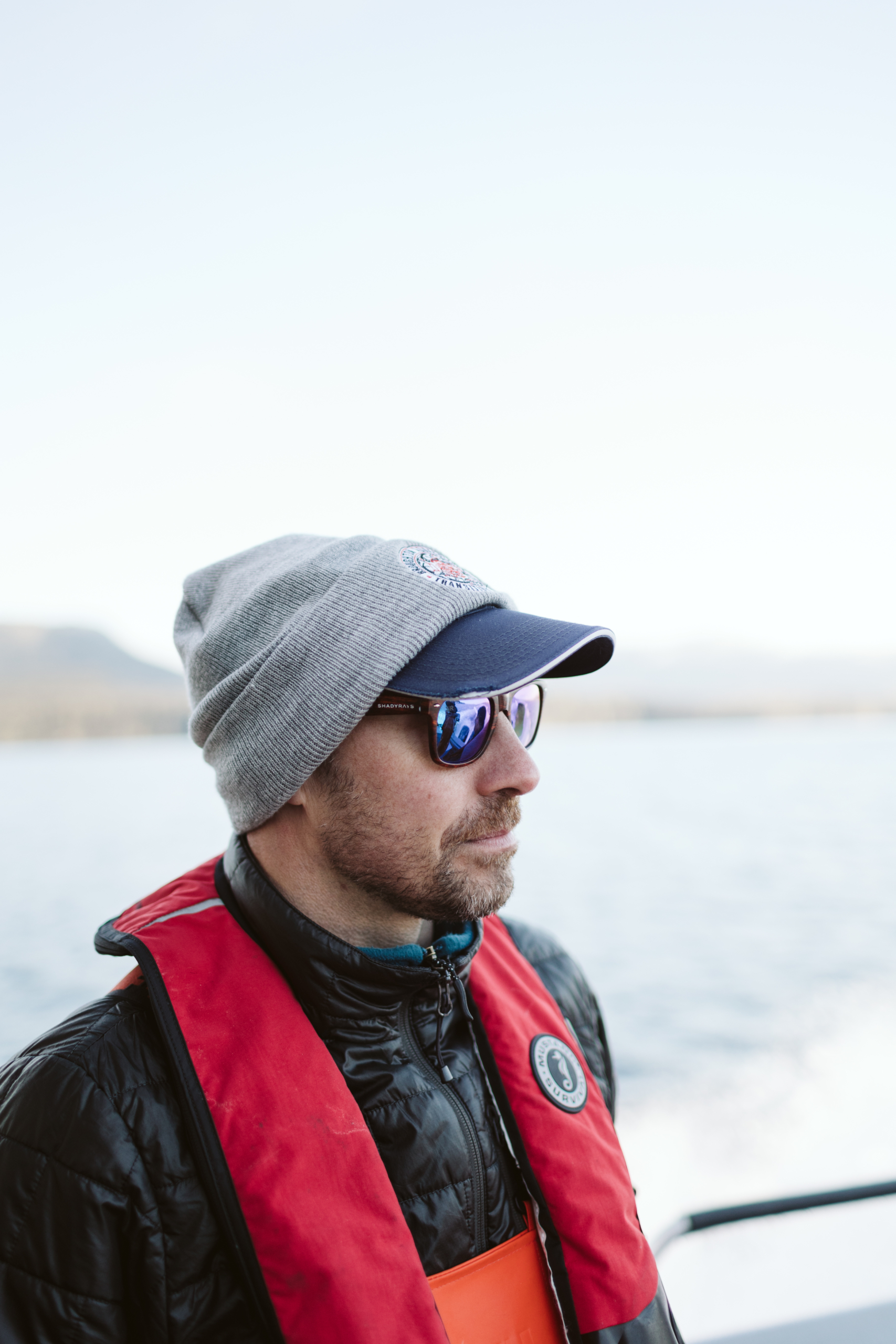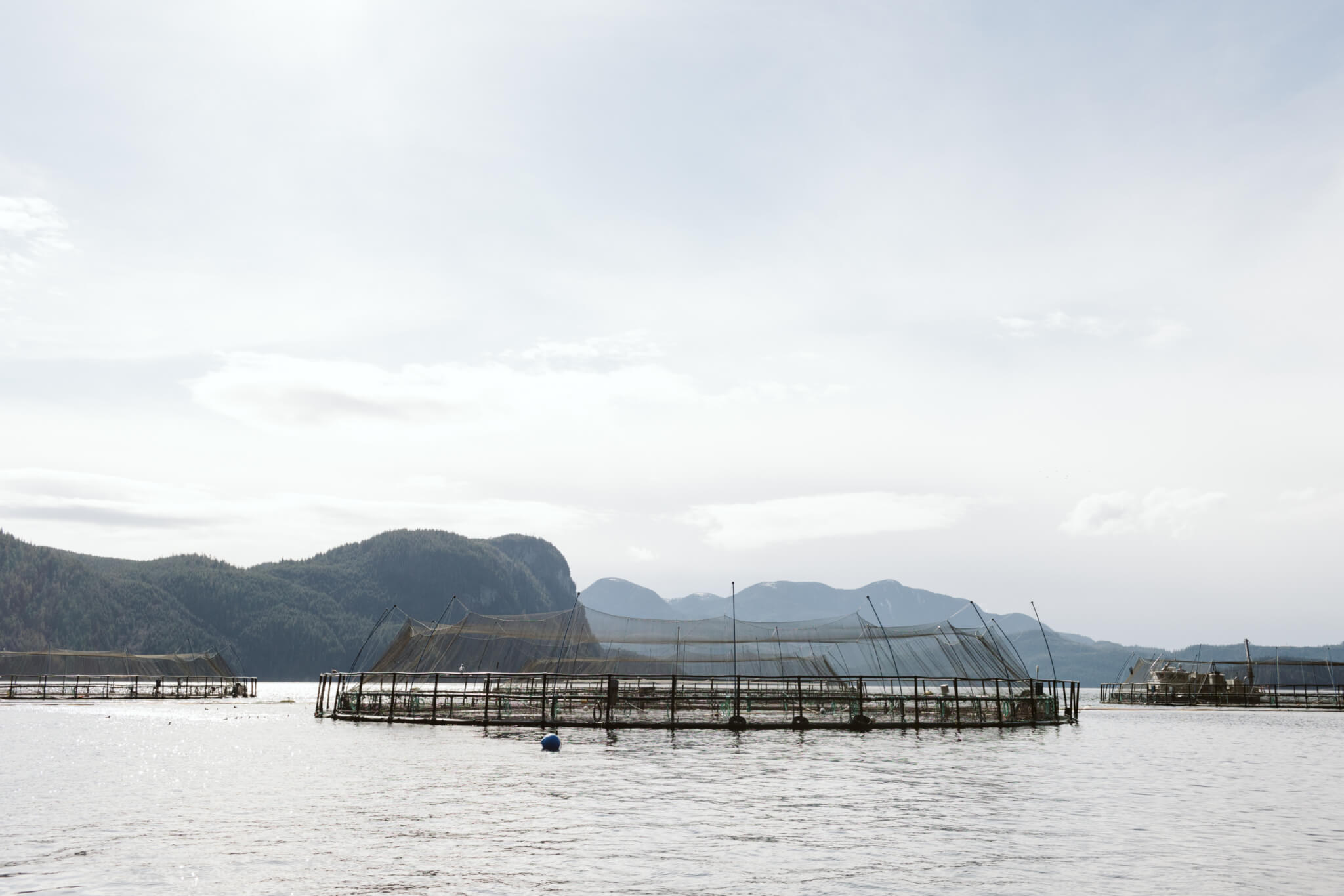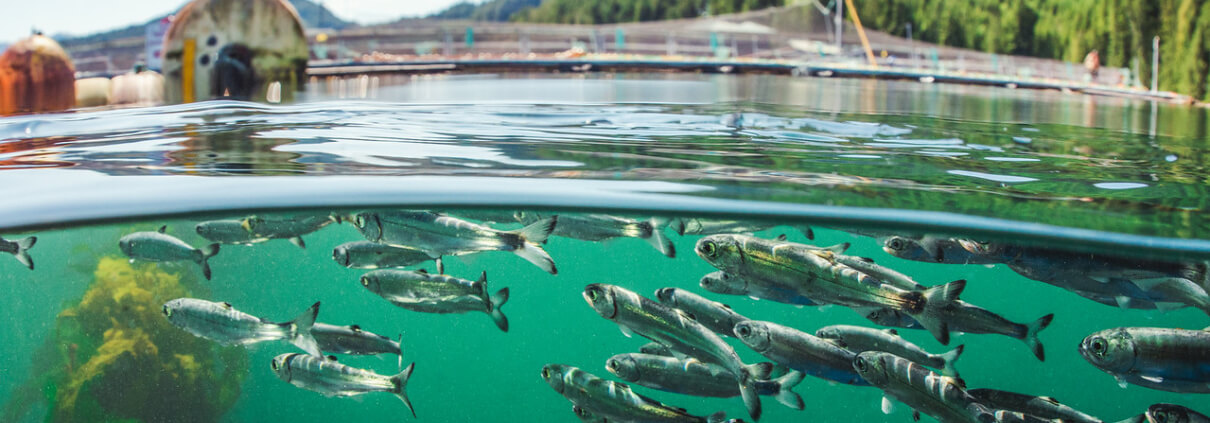Open-net pen Atlantic salmon farms in B.C. release elevated pathogen levels, study finds
April 15, 2025
Vancouver, B.C. – A new study published in Scientific Reports has found that open-net pen Atlantic salmon farms in British Columbia release elevated levels of infectious agents, which may pose risks to wild Pacific salmon – particularly Chinook salmon.
Under the leadership of the Broughton Aquaculture Transition Initiative (BATI), a project led by the Mamalilikulla, ‘Na̱mg̱is, and Kwikwasut’inux Haxwa’mis First Nations, a team of researchers, including BATI staff, filtered water from inside and around Atlantic salmon farms in the Broughton Archipelago to collect environmental DNA (eDNA). This method detects genetic traces of organisms in the water, including wild fish and infectious agents known to impact wild salmon.
They determined that the odds of detecting infectious agents were, on average, 4.3 times higher near active salmon farms relative to inactive sites. This finding provides rigorous scientific validation that Atlantic salmon farms transmit pathogens to B.C. waters and introduce exposure risks for Pacific salmon migrating through those waters.
“For decades, our salmon have been in decline, and this study provides critical answers as to why. The eDNA results will help guide our Nations in making informed decisions about our lands, waters, and territories, ensuring we are able to protect wild salmon for future generations,” says Chief Rick Johnson of Kwikwasut’inux Haxwa’mis First Nation.
“Our research clearly indicates that active open-net pen Atlantic salmon farms in British Columbia amplify infection risks for wild Pacific salmon,” says Emiliano Di Cicco, co-author of the study and fish health researcher at the Pacific Salmon Foundation (PSF). “We also saw confirmation that open-net pens can attract wild salmon with fish feed and shelter. This proximity exposes them to pathogens released by the pens, heightening the risk of infection and disease.”

PSF’s Emiliano Di Cicco in the Broughton Archipelago. Photo: Brandon Deepwell
Chinook salmon, which often spend their first year in coastal bays and inlets where open-net pens are also located, appeared more likely to linger around active open-net pen sites. This behaviour, which the researchers hypothesized was a result of Chinook being attracted to active farms, could increase the chances of Chinook encountering harmful bacteria, such as Tenacibaculum maritimum. This pathogen can cause high mortality in Chinook salmon and has the highest release levels near active farms, aligning with similar research published in 2020.
This sampling was part of a five-year transition period from 2019 to 2023, where 20 of the 23 Atlantic salmon farms in the Broughton Archipelago were closed by the efforts of the Mamalilikulla, ‘Na̱mg̱is, and Kwikwasut’inux Haxwa’mis First Nations and the Gwawaenuk Tribe. These Nations have never consented to having the fish farms in their territories and have spent decades fighting for their closure.
“The impacts of Atlantic salmon farms in our territories, particularly the spread of pathogens from farmed to wild salmon, have long been a concern. We have witnessed a devastating decline in wild salmon in our territories,” says Hereditary Chief Don Svanvik of ‘Na̱mg̱is First Nation. “Our decision to withhold consent to salmon farms reflects our unwavering commitment to protecting and restoring wild salmon populations, backed by our traditional knowledge, science, and research.”
Pathogens of concern
Led by BATI, PSF, and Fisheries and Oceans Canada, the eDNA sampling was conducted over an 18-month period at seven active and four inactive net-pen aquaculture sites in the Broughton Archipelago, all of which have since been closed.

Open-net pen Atlantic salmon farms in the Broughton Archipelago that have since been closed. Photo: Brandon Deepwell
The authors assessed the release of dozens of infectious agents and pathogens – bacteria, viruses, fungi, and parasites – from Atlantic salmon farms in B.C. that may pose risks to wild salmon.
The results indicate that 11 infectious agents are more prevalent at active open-net pen salmon farms than at inactive sites. Of those agents, the authors identified Tenacibaculum maritimum, Tenacibaculum finnmarkense, Ichthyobodo spp., and Piscine orthoreovirus as pathogens of concern due to their elevated presence near active salmon farms and existing research linking these agents to conservation risks for Pacific salmon.
For example, Tenacibaculum maritimum is widespread in Atlantic salmon farms throughout B.C. and has been linked to negative impacts on the survival and/or condition of Chinook and coho salmon. Piscine orthoreovirus, another pathogen of concern, has been documented to spread from Atlantic salmon farms to wild salmon in B.C. and is a high concern due to the risks it poses to wild Pacific salmon, particularly Chinook.
“This study provides the clearest evidence to date that open-net pen Atlantic salmon farms in British Columbia can amplify and release pathogens in the water, creating risks for wild Pacific salmon populations – many of which are already declining,” says Di Cicco.
See the full study online.
MEDIA INQUIRIES: Please contact Braela Kwan at bkwan@psf.ca or (604) 664-7664 ext. 1025



